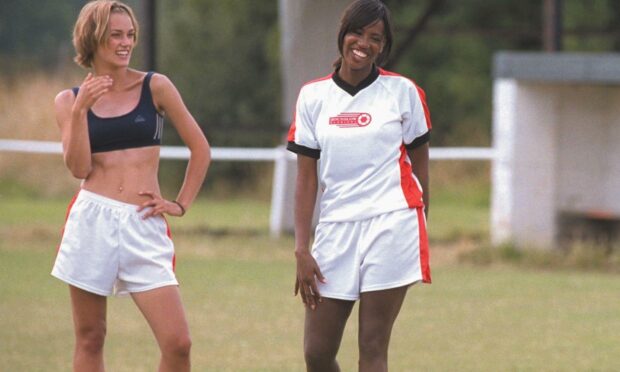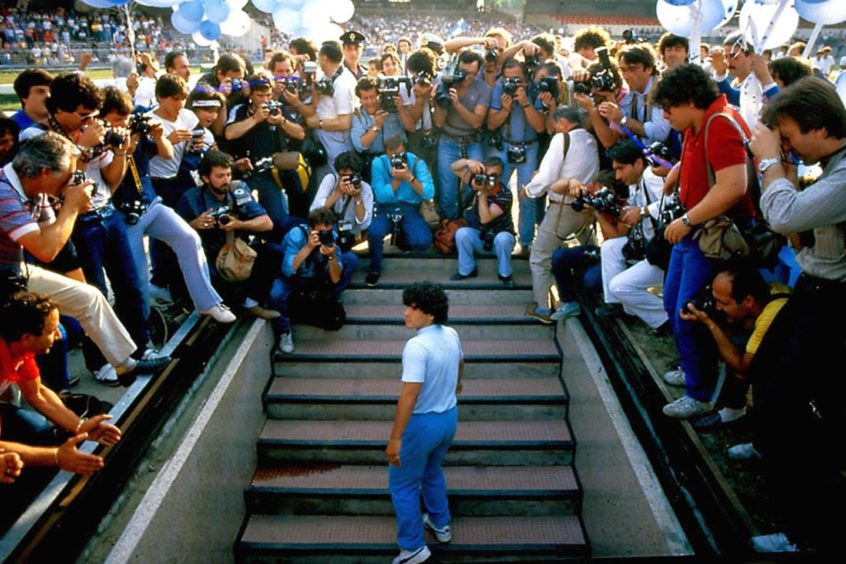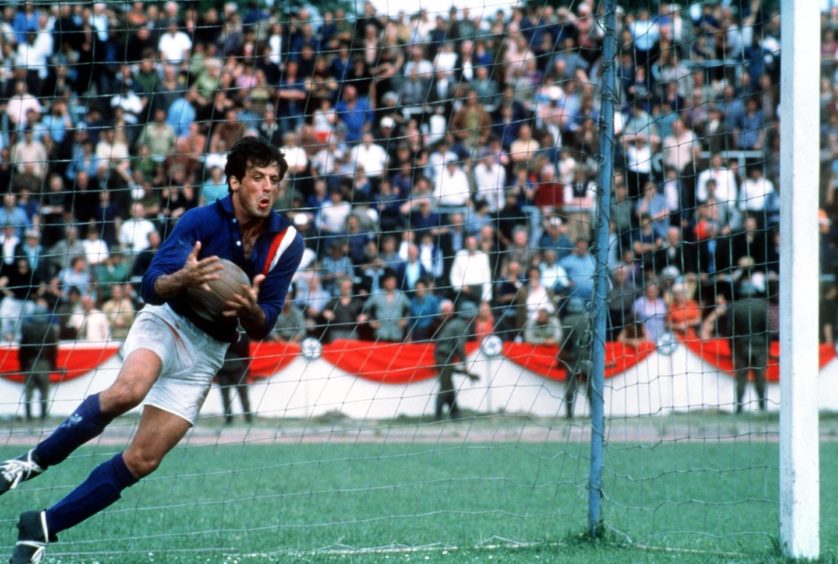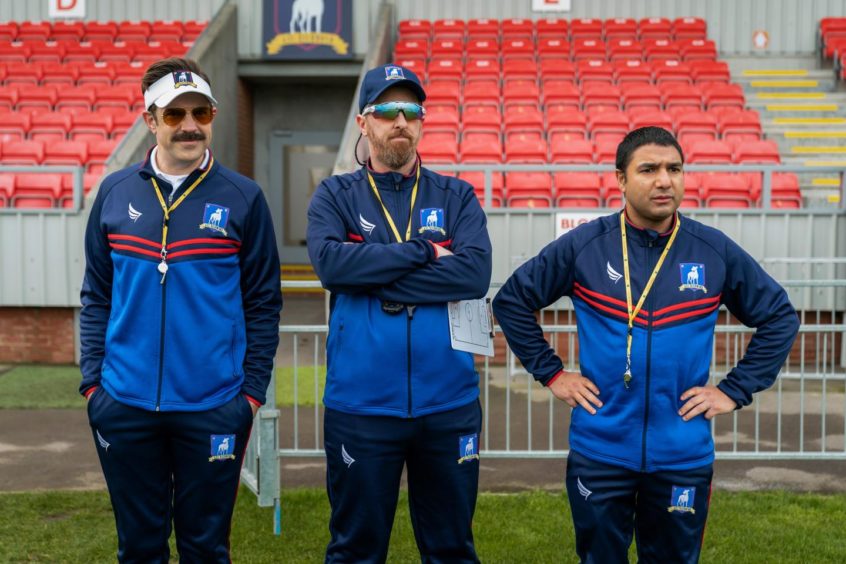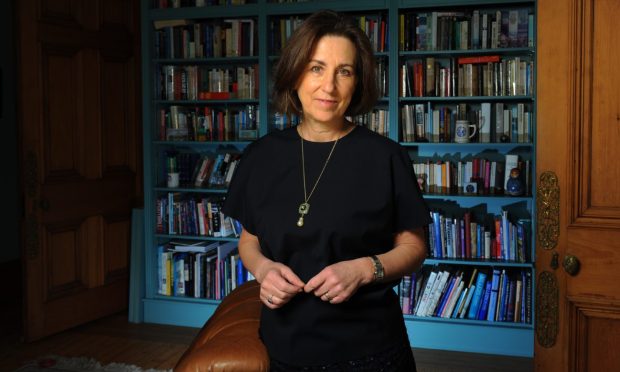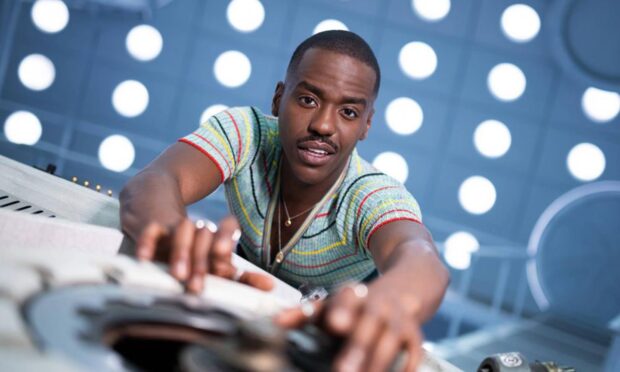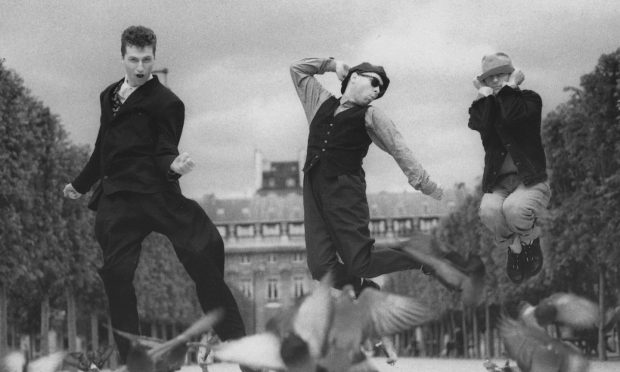“Football is life,” whispers AFC Richmond’s Dani Rojas as he steps up to take a vital penalty kick in the opening episode of Ted Lasso’s second season.
His phrase could be interpreted as a call-back to Bill Shankly’s immortal statement: “some people believe football is a matter of life and death; I am very disappointed with that attitude. I can assure you it is much, much more important than that.”
Perhaps football does exist on a lofty plane in the universe’s brand scheme, or maybe it’s more about securing the most lucrative sponsorship deal with a betting firm.
But one thing is for sure: barely anyone has represented the game very well in fictional form on either the small or big screen. From Mean Machine to Murphy’s Mob, and Mike Bassett: England Manager to Bend It Like Beckham, every single football cliché in the book is tackled.
Over-the-top affairs such as Escape To Victory and Goal! are in the so-bad-they-might-actually-be-amazing bracket.
The more successful likes of Fever Pitch or The Damned United were sourced from wonderful books while a cult classic such as Wim Wenders’ The Goalkeeper’s Fear Of The Penalty merely uses the game as a backdrop to ask real questions about human existence.
Stuart Cosgrove, author of Hampden Babylon, and co-host of Radio Scotland’s Off The Ball offers a technical reason behind the failure of fictionalised football to be victorious.
“The game is so burnished in people’s minds as a multi-camera TV experience that single-camera film struggles to replicate what people are familiar with. I can’t say there are many great films about football. I liked The Damned United but preferred the book. It was about football but mainly about intense male rivalry.”
Perhaps the game is better served (as most subjects are) by documentary filmmakers. Asif Kapadia’s Diego Maradona is a definitive depiction of the late Argentine legend’s chaotic time when playing in Italy, while Zidane by Scottish Turner Prize-winner Douglas Gordon (accompanied by a rollercoaster Mogwai soundtrack) focused solely on the Frenchman during a single match for Real Madrid, the camera artfully fixed on his twinkletoed feet or steely facial expressions.
So where does a TV programme like Ted Lasso fit into this generally awful sub-genre?
Classic fish-out-of-water tale
A classic fish-out-of-water tale, it features Jason Sudeikis as a coach of American football at college level who is hired completely out of the blue to become manager of sleeping English giant AFC Richmond.
Supporters and players alike are bemused and outraged at his appointment, unaware that, à la The Producers, he has been hired purely to facilitate the ailing club’s further collapse towards oblivion.
But against all the odds (obviously), through hard graft, large slices of fortune, and folksy Kansas philosophising, Ted manages to turn it all around.
In a curious twist of synchronicity, Ted Lasso’s first series in 2020 arrived around the same time as BBC Two launched The First Team in which another American (this time a player) joins a struggling English team under a dubious pretext, and has a problem winning over some disgruntled team-mates and fans.
Coarse humour and laddish antics
Penned by the guys behind The Inbetweeners, it too often traded in coarse humour and laddish antics. By contrast, Ted Lasso is a more rounded football and human story, with hope in its heart and a multi-nation cast of characters who manage to stay on the right side of stereotyping.
Stand-up comedian and regular contributor to BBC Scotland’s recent Scottish Cup Classics, Mark Nelson reckons that football on screen succeeds best when it moves the focus away from the field of play where it often falls prey to cliché and melodrama.
“I think the reason football films are never that great is because it is such a traditional working-class British sport.
“Unlike Americans, we don’t like to show off or make the sport seem glamourous. We don’t like to put the Hollywood spin on our national sport because it is not the British way.
“Football is a gritty, down-to-earth sport and that’s probably why the majority of the films about it deal with the hooliganism side of things. It is the people’s game and so the films focus on the people.”
- Ted Lasso season two airs on AppleTV+, July 23.
